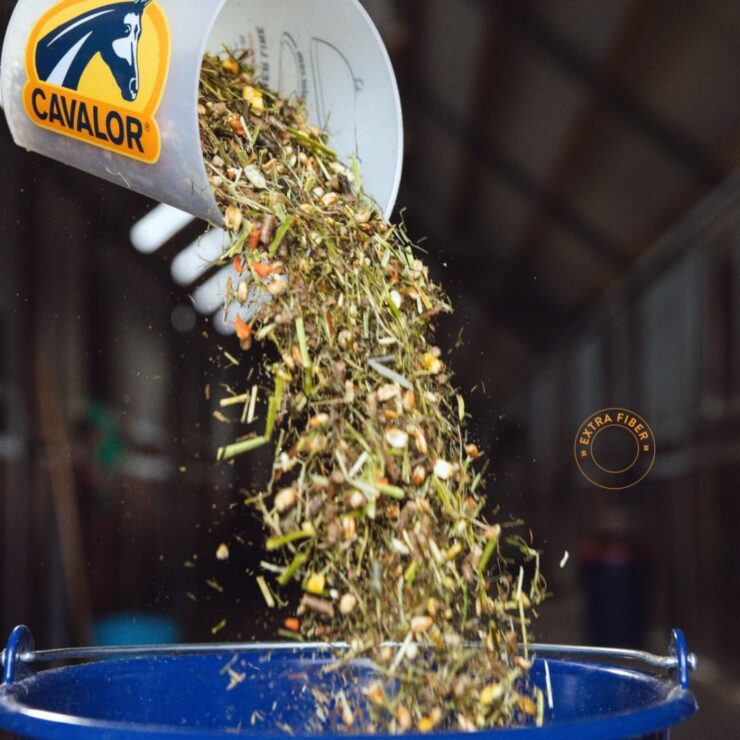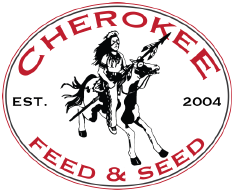 Nourish Your Horse Inside and Out: Good digestion is the basis of good health and starts from the inside. Horses are herd animals by nature that once lived on the Eurasian Steppes. Horses would graze all day and night, spending as much as 16 hours a day nibbling on grasses and herbs that were low in nutrients. This gave them a constant intake of high fiber food in small amounts. The grass was high in fiber but low in sugar and protein. The range of herbs and grasses available to them was so diverse that they had access to many different vitamins and minerals. The natural diet of horses was high in fiber and contained plenty of vitamins and minerals.
Nourish Your Horse Inside and Out: Good digestion is the basis of good health and starts from the inside. Horses are herd animals by nature that once lived on the Eurasian Steppes. Horses would graze all day and night, spending as much as 16 hours a day nibbling on grasses and herbs that were low in nutrients. This gave them a constant intake of high fiber food in small amounts. The grass was high in fiber but low in sugar and protein. The range of herbs and grasses available to them was so diverse that they had access to many different vitamins and minerals. The natural diet of horses was high in fiber and contained plenty of vitamins and minerals.
The daily lives of horses changed with domestication. Horses were put to work pulling wagons or being ridden, and grass no longer provided enough energy. This deficit was overcome by feeding cereals to working horses.
Fast forward to the modern day of horses – the daily lives of domesticated horses are very different from the early days on the Steppes. Horses are stabled. Therefore they have less access to pasture and forage now contains more energy and protein. Pastures contain a much more limited range of herbs which means the vitamin and mineral content is much lower. The lives of today’s domesticated horses differ from those of their free-roaming ancestors. However, their digestive system is still the same delicate system. Equine digestive tracts are designed to absorb small amounts of high-fiber forage throughout the day. Unfortunately, something not all modern horses gets.
Forage
The foundation of every horse’s diet is forage. Forage is a fiber source supporting a heathy gut microbiome. It’s important for the movement of food through the digestive tract. Forage forms a good foundation but does not always contain enough minerals, vitamins and trace elements. These are all important aspects for a balanced equine diet. There are several ways to ensure vitamin and mineral requirements are met through concentrates or balancers. Depending, of course, on your horse’s activity level and routine.
Cavalor Products
Cavalor ensures good healthy products by always opting for quality, and containing several active ingredients. They believe in the power of combinations of ingredients rather than one single ingredient. Cavalor feeds are textured that requires longer chewing time, eating slower and producing more saliva. Saliva contains sodium bicarbonate, a buffer to neutralize excess stomach acid. We use puffed and extruded grains – a process that improves the digestibility of starch and promotes the absorption of other nutrients. Puffed and extruded grains pass through the stomach and small intestine more slowly. Which gives digestive enzymes more time to break down feed. The result is a horse that can absorb more nutrients from the feed and the rapid release of sugar and starch is prevented.
Equine Digestive System
Did you know the equine digestive system is crucially linked to the immune system? Horses become more susceptible to disease and injury when their digestive systems are not functioning properly.
Let the food be thy medicine. The digestive system is made of several sections. Each are responsible for a part of the absorbed nutrients. Each part is key. So, a problem at the beginning of the digestive system can also lead to problems at its end. That is why it’s important to respect equine nature as much as possible with regard to feed. Do this with several small meals per day and a good foundation of forage. Nourish your horse from the inside out, a healthy digestive system will reflect on the outside as well.
This information was provided by Cherokee Feed’s Cavalor Representative.
